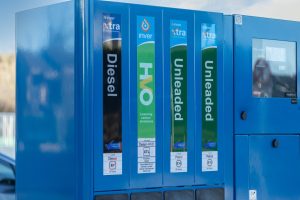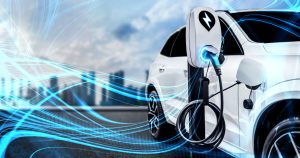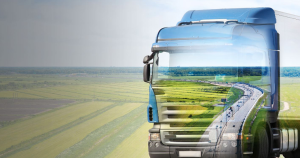‘The Cornerstone of our National Economy’ – Fuels for Ireland

5 Key Priorities for Forecourt Operators for the General Election
By Kevin McPartlan, CEO of Fuels for Ireland
Ireland’s forecourt retail sector is a cornerstone of our national economy. The liquid fuels industry provides over 50% of the nation’s energy needs, employing around 16,000 people directly, with another 50,000 indirectly. With the next general election due by the end of March but expected sooner, it is crucial that we advocate for policies that support the longevity and transformation of our industry. Here are five pivotal points that Fuels for Ireland (FFI) urges candidates to include in their party manifestos, and if a politician visits your forecourt, we ask you to convey to them:
- Establishment of an Expert Group on Taxation
To ensure a balanced and sustainable transition from fossil fuels to renewable energy, a comprehensive review of energy taxation is essential. This is our most critical ask. We propose the creation of an expert group comprising government officials, economists, environmental specialists, and industry representatives. This group would provide targeted advice on developing a fiscal strategy that supports both the transition to sustainable energy and the financial stability of the fuels sector.
The future of our sector hinges on a balanced approach to energy taxation. Historically, attempts to drive consumers toward alternative fuels through increased taxation have not been effective. A more nuanced approach is required, one that recognises the role of advanced biofuels and maintains state revenue while ensuring that fuel remains affordable for all. The expert group would help craft a balanced policy that acknowledges these challenges and supports a fair transition.
The Government must urgently reassess its approach to energy taxation to facilitate a balanced transition. We believe the expert group should address three critical areas:
- Supporting the energy transition: The urgent need to move away from fossil fuels and replace them with sustainable renewable is undeniable, but change is challenging. EVs are of course a huge part of the solution, but they alone are failing to meet the targets to reduce emissions from transport. Government support is needed for businesses and consumers to switch away from petroleum to advanced, synthetic, and biofuels, as well as e-fuels, in addition to electric vehicles.
- Protecting revenue to the State: Currently about 6% of all taxation collected in Ireland comes from fuels. It will be impossible to continue to subsidise EVs as they become increasingly prevalent while sales of fossil fuels fall as a consequence. A new model must be found to ensure the revenue on which the state depends is preserved.
- Protecting the vulnerable: For many years, Ministers have argued that increasing taxes, excise duties, and levies on fossil fuels would influence consumer behaviour and encourage motorists and businesses to switch to EVs. This has demonstrably failed (proven by the fact that sales volumes do not change in line with pump prices). We must recognise that Government levying ever greater taxes onto fuels is not a pro-environmental policy, it is simply stealth tax – and that those who simply cannot afford to switch to an EV are those least able to afford higher fuels prices.
By addressing these areas, the expert group can help craft policies that encourage a gradual and equitable shift towards cleaner energy sources.
- Embrace an Open-Minded Approach to Technologies for Decarbonisation
The urgency of climate change demands that we consider every viable technology to reduce carbon emissions. Advanced and synthetic biofuels, such as Hydrotreated Vegetable Oil (HVO), can significantly reduce transport emissions and serve as a bridge in the transition to a fully sustainable energy system. They have immediate, short-term and medium-term benefits in reducing carbon emissions. Their greater adoption needs to be at the heart of climate and energy policy.
Ursula von der Leyen’s Political Guidelines for the 2024-2029 EU cycle underscore the crucial role that e-fuels will play in achieving climate neutrality. The guidelines advocate for a technology-neutral stance in the decarbonisation of sectors like mobility and energy, which includes the potential for internal combustion engine (ICE) vehicles running on 100% e-fuels to be exempt from the 2035 ban on new ICE vehicle sales. This approach aligns with the anticipated review of the 2035 regulation in 2026, which aims to incorporate this broader, technology-neutral perspective.
Embracing e-fuels is about creating a diverse and pragmatic approach to our energy transition. It is a recognition that technology alone won’t solve the problem; we need to be open to solutions that work in the real world.
Recognising the role of e-fuels is a step towards a more comprehensive strategy for decarbonising road transport. This will not only help meet the 2035 target of eliminating CO2 emissions from new vehicles but also facilitate the decarbonisation of the existing ICE vehicle fleet across Europe.
European policy has historically led the way, setting a precedent for member states, including Ireland, to follow. It is imperative that Ireland not only adheres to these European Directives but also strives to exceed them.
Fuels for Ireland supports this expanded vision, advocating for a balanced approach that integrates e-fuels into our climate strategy. This technological openness is essential for Ireland and Europe to achieve ambitious climate goals more efficiently and effectively.
We advocate for an open-minded approach to all effective technologies and urge politicians to support policies that recognise and promote the use of these innovative fuels.
- Exploring Supports for Domestic Production of Advanced Biofuels
Supporting the domestic production of advanced and synthetic biofuels is vital for several reasons. It not only enhances energy security but also provides economic benefits by boosting local agriculture and industry. As Irish agriculture shifts away from carbon-intensive practices, biofuel production offers a promising alternative that aligns with broader environmental goals.
The Government should explore policies that encourage domestic biofuel production, including investment in research and development and financial incentives for producers. This would not only help meet our climate targets but also create new economic opportunities in rural areas, fostering a more resilient and sustainable agricultural sector.
- Enhance Electric Vehicle Infrastructure and Incentives
Forecourt operators are already leading the charge in installing EV chargers, with Ireland having one of the highest numbers of charging points on forecourts in the EU. However, significant barriers remain, such as grid capacity constraints, high connection costs, and slow planning approvals.
The Alternative Fuels Infrastructure Regulation sets ambitious targets for EV charging infrastructure, but the current support is insufficient. While a recent Government €21 million fund is a step in the right direction, it is merely a drop in the ocean compared to the scale of investment needed. We need streamlined planning processes, government matching funds, and access to the Climate Action Fund to support the installation of EV chargers. Additionally, integrating low-carbon fuels with EV infrastructure will ensure a comprehensive approach to reducing transport emissions.
To support a wider adoption of EVs, it’s crucial to extend this infrastructure beyond the primary road network. Charging stations should be strategically placed in urban centres, rural areas, and other key locations to ensure that all drivers have access to reliable charging options. This expansion will help mitigate range anxiety and make EV ownership more feasible for a larger segment of the population.
Moreover, supporting the development of ultra-fast charging stations at forecourts is vital. These stations will facilitate quicker recharging and improve the overall efficiency of the EV network. The new Government should acknowledge that investment in this area is necessary to match the pace of EV adoption and ensure that charging infrastructure meets future demand.
- Establishment of a Dedicated Ministry of State for Energy
Energy policy in Ireland is currently dispersed across various departments, leading to fragmented and often ineffective strategies. Ireland needs a dedicated Minister of State for Energy, operating within a new Department of Infrastructure, who will be responsible for developing and implementing a dynamic energy policy.
This role would centralise responsibility for managing Ireland’s energy needs, ensuring a strategic approach to energy security and infrastructure development. A dedicated minister would address the critical issues of energy supply and demand, support the growth of renewable energy, and ensure that Ireland’s energy infrastructure can support both current needs and future growth. This approach would align Ireland with other EU countries that have successfully implemented similar positions, demonstrating a commitment to both energy security and climate goals.
Ireland is currently grappling with two of its most pressing challenges: housing and energy infrastructure. While we have a dedicated Minister for Housing, there is no specific Minister for Energy, highlighting a critical gap in our governance. While the current Government has correctly focused on climate initiatives, there was an insufficient focus on energy infrastructure and how best to achieve these goals.
As a sector responsible for supplying 50% of Ireland’s energy needs, we find it concerning that there has been minimal engagement with us on how we will meet both current and future energy demands.
The reality is that we are one severe winter away from potential blackouts. The Government must recognise that energy security is as critical as national security. Without adequate attention and resources dedicated to energy infrastructure, Ireland risks compromising its economic growth and stability.
As forecourt operators, you have a unique opportunity to influence policy and protect the interests of our industry. When engaging with candidates and political parties, emphasise these five key points. Advocating for the establishment of an expert group on taxation, an open-minded approach to advanced biofuels, support for domestic biofuel production, enhanced EV charging infrastructure, and a dedicated Ministry of State for Energy will ensure that the forecourt sector remains a vital and sustainable part of Ireland’s energy landscape.
Our sector’s role in providing essential energy services cannot be overstated. As we navigate the transition to a greener future, it is imperative that we have the right policies in place to support both our industry and Ireland’s broader climate goals.
We are not climate-change deniers; we too share the objective of achieving carbon neutrality by 2050, and we can have a genuine significant positive impact in achieving this. What we want, is to ensure that all viable options for reducing emissions are considered and implemented.
Let us work together to shape a future where our sector continues to thrive while contributing to a more sustainable and resilient energy system.












